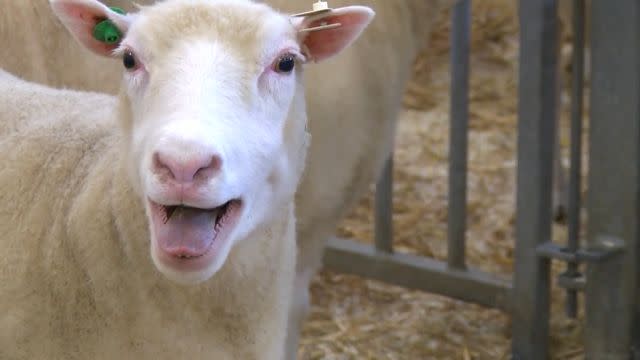Dolly the sheep’s clones are perfectly healthy, which could be huge for the future of cloning

When Dolly the sheep died of lung disease and severe arthritis in 2003 after a relatively short seven year life, many scientists speculated that perhaps cloning had something to do with it. Could cloning an adult mammal, they wondered, make the clone adult-like right from birth. Maybe clones were not meant to live very long.
It appears that is not the case.
Scientists at the UK’s University of Nottingham just released a study showing that clones can lead long, healthy lives after all. It is the first long-term study of the health effects of cloning in a large animal. As the video above shows, the scientists followed the lives of 13 cloned sheep, four of which were actually cloned from the very same cells that Dolly came from.
The sheep range in age from seven to nine, and were given a battery of tests to determine their susceptibility to various age-related, non-communicable diseases, particularly those like osteoarthritis, that affected Dolly. With the exception of one sheep that did show signs of moderate osteoarthritis, the sheep are perfectly healthy.
The scientists involved with the study say that these results could have significant impact on our views about the safety of cloning and its long-term effects on animal health.

Sign up for the Quartz Daily Brief, our free daily newsletter with the world’s most important and interesting news.
More stories from Quartz:

